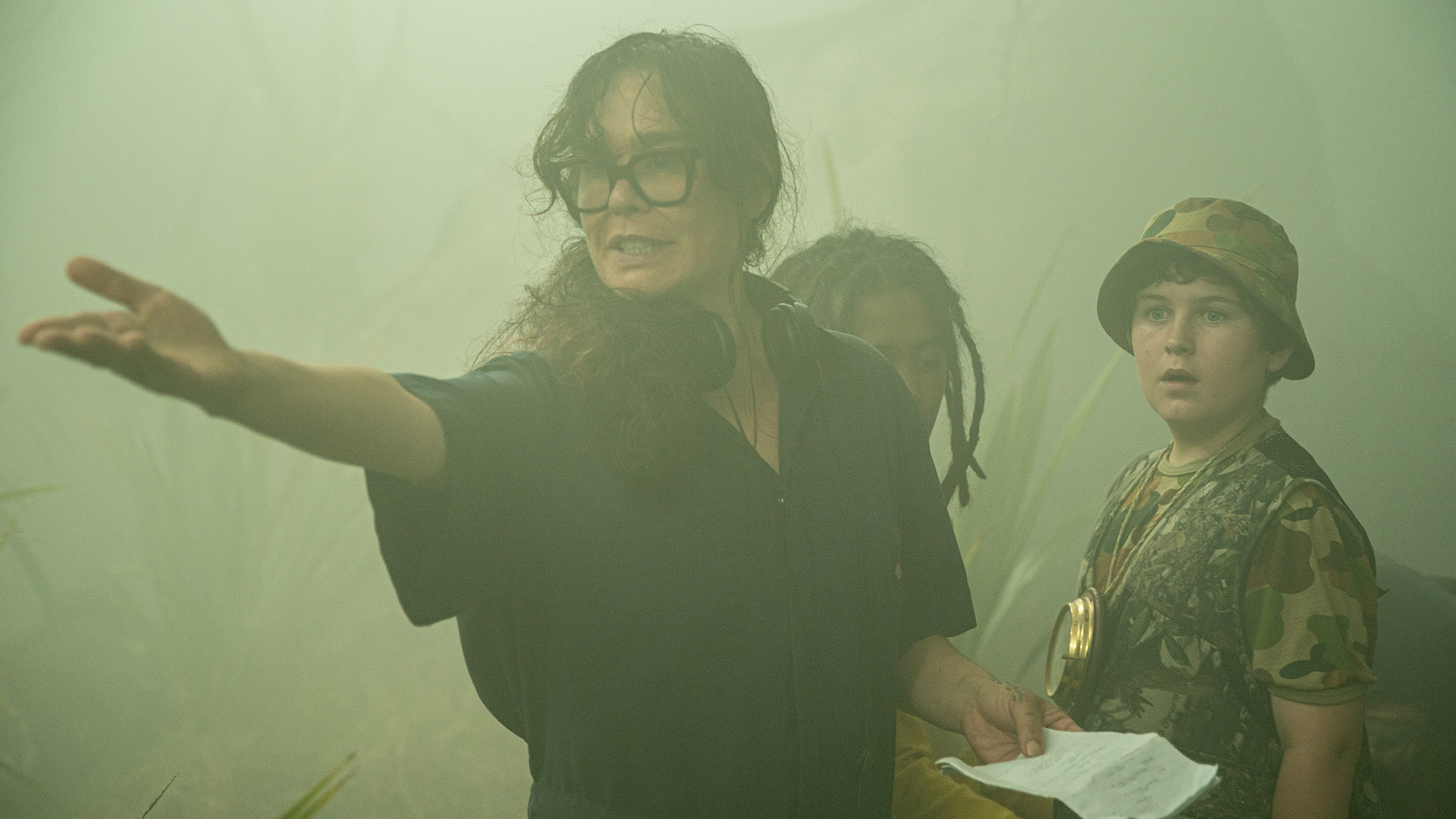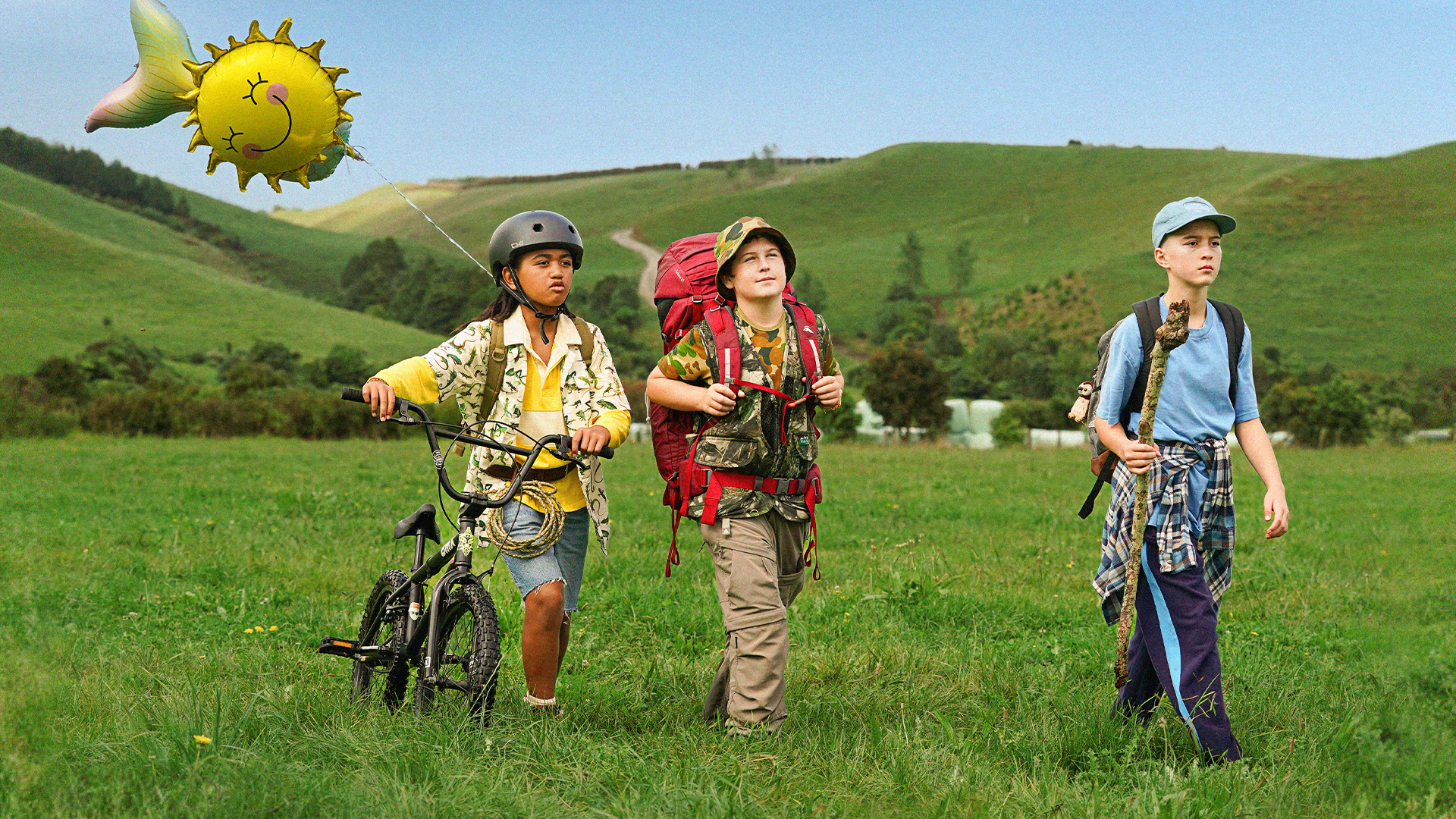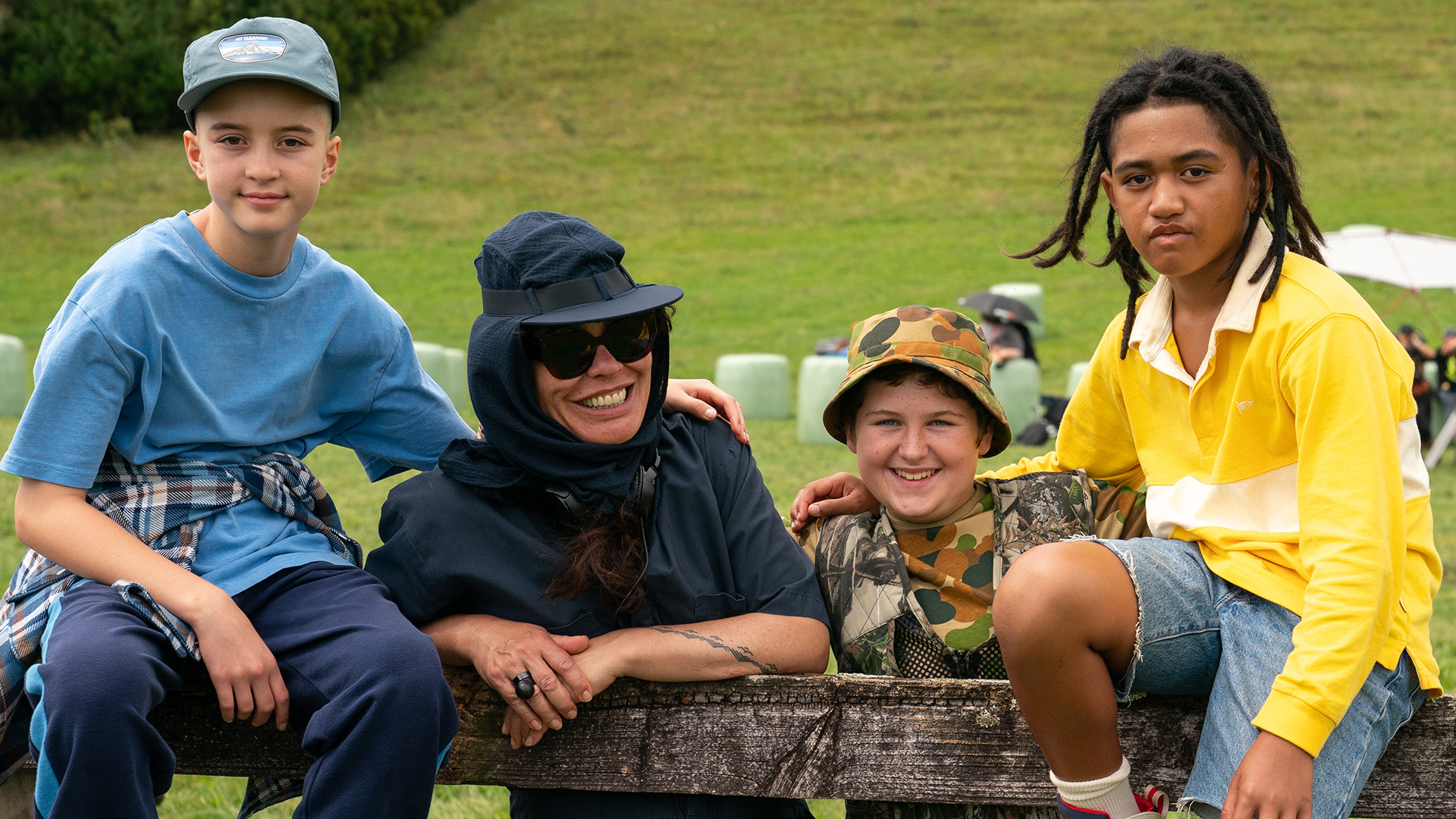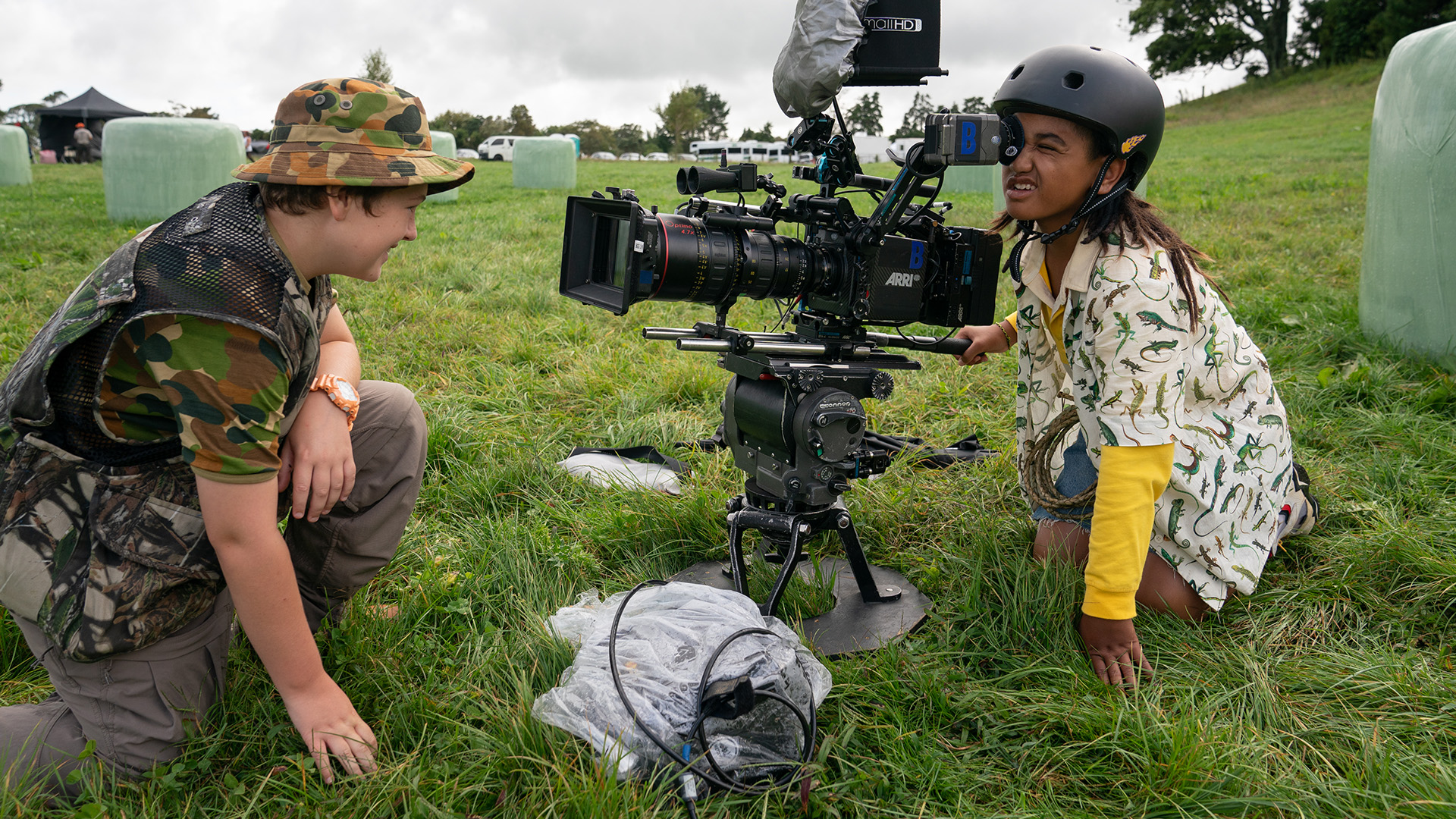Rachel House on making The Mountain, her first feature film as director

Rachel House’s directorial debut, The Mountain follows three kids on a mission to find healing under the watchful eye of Taranaki Maunga. Steve Newall caught up with House ahead of the film’s release.
With decades of screen credits, Rachel House has been a fixture on screens around Aotearoa and (increasingly in recent years) internationally. Now she is harnessing all that acting experience in service of a new challenge—as a first-time feature film director with The Mountain. With the film now making its way into the world after its world premiere in Taranaki last night, it’s a new feeling for House as a filmmaker as opposed to actor. “Oh yeah, really different,” she tells me. “I mean, I feel much more responsible. All the screenings that I’ve been to, I’ve always been incredibly nervous. And I think usually, as an actor, the worst part’s done after the first screening, and then you kind of relax and watch the rest of the film.”
Originating from a screenplay by Tom Furniss, The Mountain was shown to House by Piki Films, who saw the opportunity for her to direct. “I think the biggest appeal for me was in fact that it was a kids’ journey to a mountain, and all three of the boys—that it was, originally—were going through some kind of grief,” House shares. But more was going to be required than shooting Furniss’s screenplay as it stood. “I found it, you know, a bit strange that the mountain hadn’t been named by Tom,” says House. “So that was sort of the first step in the process of reimagining it, redoing it, reworking it.”

With House’s input, The Mountain became about Sam (Elizabeth Atkinson), a little girl, who, like one of Furniss’s childhood friends who’d inspired the screenplay, was going through cancer. Escaping hospital, Sam embarks on a journey that sees her link up with two other youngsters, Mallory (Reuben Francis) and Bronco (Terence Daniel).
“It became about her finding a sense of belonging and healing as someone who hadn’t been raised in her culture,” House tells me. “And, because of that, it became Taranaki—which is a privilege, to be able to put Taranaki in your story. But also, with that came the need to have a character like Bronco, who had all that Indigenous knowledge and understanding of Te Taiao. And the way that Sam was perceiving the maunga and why it was so important for her to connect.”
The bones of the story may feel somewhat timeless, but as I put to House, Te Ao Māori is weaved through the picture in a way that is both matter-of-fact in 2024 Aotearoa, and a contradiction to some of the divisive things that we’re seeing in the news. “It wasn’t intentional,” she says. “Really, I just followed the characters, followed what it would be like for Sam to not have that cultural upbringing and followed what it would be like for Bronco. And there was a question as to whether you know, I’d intentionally put Te Reo Māori in the script but it was just exactly how I imagined Bronco as his gang to operate.”
One of the other fascinating things about the film is crediting the mountain of the title, Taranaki Maunga, as a character—something I was seeing for the first time. As House explains, this is an extension of how Māori culture perceives maunga as ancestors. “It’s about bringing in that perspective,” House explains. “And, I suppose, that’s something that really struck me about Tom’s initial script, is the lack of that.”
“It was definitely not disrespectful at all by Tom,” House clarifies. “But to me, it jolted me, it jarred with me, because, you know, that’s how we see our mountains. And so while that was lacking, it was also such a great opportunity to bring in the origin story of Taranaki and Pouākai and Te Toka a Rauhoto, and somehow incorporate that. I mean, it sort of came really fluidly in all honesty, because there were already three kids, there were three people there at the time. All those three coming together, and those two friends of Taranaki coming in and helping Taranaki when Taranaki most needed it.”

I asked House if there were any moments where she found herself using a trick that she’d picked up from another director. “Yep!” she confirms. “Well, look, I think what I picked up, over the years is that it’s whatever it takes, because kids can be slightly different to work with than older trained actors for obvious reasons. So yeah, there were definitely tricks like with line readings, which is a dreaded no from adult actors—you should never ever give a line reading. It’s so insulting and condescending. But for these guys, it’s definitely something I picked up along the way. Sometimes you just have to get them into the rhythm a lot quicker, because we’re also up against the clock.”
The bonds between the cast that we see forming on screen reflect their real life experience with each other—and their director. The shoot has left lasting memories, as well as a special relationship. “Here’s what I know about the film industry,” House shared with her young charges. “You’ve become a family for that time together. And families are a bit more complicated than just straight out friendship, I suppose. Because they have such ups and downs.”

The Mountain completed shooting in May of last year, so it’s been a minute since this family was together. How’s it been for House to see the kids again? “We finished the week before Christmas,” she says. “So I’ve seen these kids every single day—on screen, you know what I mean? They’ve been with me for the whole year really, it feels like they’ve been in the room with me at all times.”
“So yeah, I haven’t missed them at all,” House laughs. “I’m kidding—I love seeing these guys, I love it!”



















